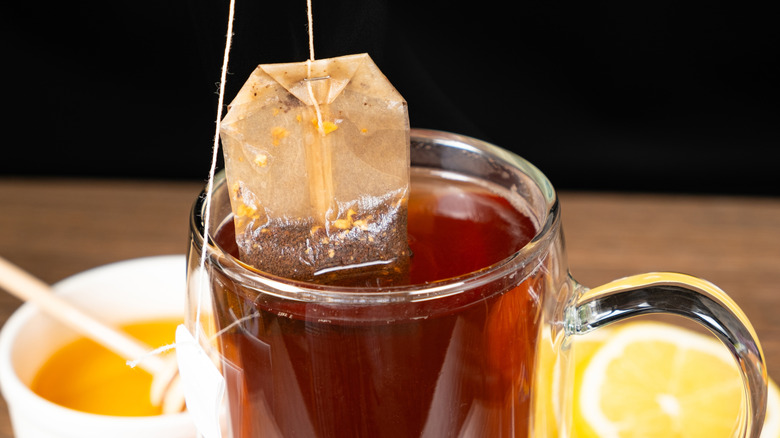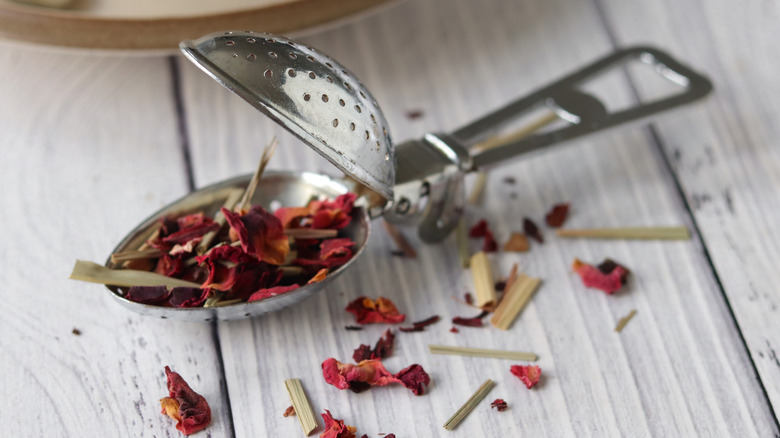Should You Be Worried About Microplastics In Tea Bags?
If you're a tea enthusiast who loves a calming cup of chamomile or a robust Earl Grey, you might have heard whispers about microplastics lurking in the very tea bags we use daily. Yes, microplastics, the same tiny particles found in bottled water and not-so-microwave-safe containers, might also be steeping alongside your tea. But before you start side-eyeing your tea cabinet, let's figure out what the deal with microplastics in tea bags really is, and whether it's anything we should worry about.
Microplastics are tiny plastic particles shed from synthetic materials. From clothes to packaging, researchers are coming to realize, they're everywhere and, sadly, tea bags are no exception. Many modern tea bags, particularly those sleek, pyramid-shaped ones that feel almost too fancy to use, are made from food-grade plastics. When exposed to boiling water, these plastics can release thousands, and sometimes even up to billions (with a "B"!), of microplastic particles into your tea. Sounds unsettling, right? But is it dangerous? For now, the research is still brewing, and the risks aren't entirely clear. What we do know is that some companies are exploring alternatives to cut back on plastic use, much like the plastic wrap alternative that's already hitting shelves.
What are microplastics, and should you worry about them?
Microplastics are essentially tiny fragments of plastic, less than 5 millimeters (0.196 inches) in size, that come from larger plastic products breaking down over time. In the context of tea bags, these particles can enter your drink if the tea bag material is made of plastic or contains plastic fibers, which many do. A study conducted by McGill University revealed that a single plastic tea bag steeped in hot water can release billions of microplastic particles into your cup –and you're consuming all of them in the delicious tea you just brewed. Yikes!
While the idea of sipping on microplastics isn't exactly appetizing, it's important to note that scientists are still studying the long-term health effects. So far, there's no definitive evidence to prove that consuming small amounts of microplastics is harmful, but the jury is still out. This is not to say microplastics aren't dangerous — we just don't know either way yet, so it's best to be safe. In the meantime, opting for loose-leaf tea or tea bags made from natural fibers, like unbleached paper or innovative alternatives to traditional plastic, can help you avoid unnecessary exposure.
If you're determined to cut down on microplastics, scrutinize packaging labels or switch to brands that specifically market plastic-free tea bags. After all, there's no harm in sipping smarter while the science catches up. And hey, if nothing else, this is the perfect excuse to treat yourself to a cute tea strainer for loose-leaf blends.

